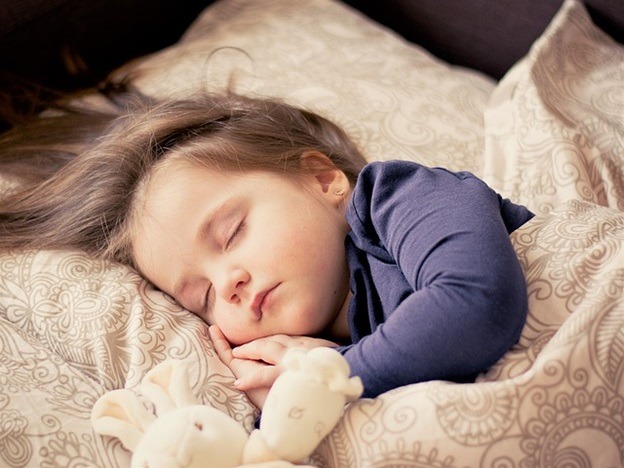Just like adults, the average kid often has a busy and activity-filled day. Children have to; go to school, go to sports practice, run around with friends, take care of pets, do homework, and other activities. At the end of the day, they feel exhausted and need a good night’s sleep to allow their mind and body to rest for the next day.
Adjustable beds are highly encouraged for both kids and adults since they provide multiple sleep-promoting benefits such as finding the most comfortable position for sleep and relief for sleep disorders and conditions like sleep apnea and acid reflux, respectively. Latex, hybrid, and memory foam mattresses are usually the best mattress for adjustable beds. Their support and durability make for a comfortable and quality sleep experience.
What Are the Benefits of Sleep to Kids
A child’s brain requires getting enough rest through sleep to restore the resources used up during the day. With a well-rested brain, your child can; learn new information, solve problems and enjoy the day a lot more. Children who often get enough sleep:
- Make better and more favorable decisions
- Are more creative
- Have better problem-solving abilities
- Can concentrate on tasks for longer
- Can learn and remember new things
- Can create and maintain good relations among peers
- Have more energy during the day
What Are the Symptoms of Lack of Sleep
If your child is not getting enough sleep each night, it can lead to multiple negative consequences, which can not be easily erased with extra hours of sleep the next day. Prolonged sleep deprivation produces a range of; cognitive (mental), behavioral and emotional symptoms.
Cognitive(Mental) Symptoms
- Blurred vision
- Increased forgetfulness
- Difficulty learning new information
- Lacking; attention, interest, and motivation for everyday tasks
Physical Symptoms
- Complaining of feeling exhausted and wanting to take a nap during the day
- Finding it difficult to wake up in the morning
- Wanting to take unhealthy stimulants such as sugar regularly
- Frequently yawning during the day
- Seeming drowsy and falling asleep at school or while trying to do homework
- Falling asleep after being woken up and needing to be woken up again and repeatedly
- Preferring to lie down during the day even if it risks missing out on activities with family and friends
Emotional Symptoms
- Increased impulsivity
- Increased stress throughout the day
- Increased irritability and moodiness
Sleep debt is a condition whereby your child owes their body and mind sleep. A large sleep debt often leaves your child feeling mentally exhausted. Sleep debt can also worsen the symptoms of pre-existing behavioral anxiety and mood disorders such as bipolar disorder or depression.
What Are the Main Stages of Sleep
As you lay in bed drifting off to sleep, it may seem like there’s not a lot happening as the room gets fuzzier and your eyelids feel heavier by the minute. This is when your brain takes the wheel and tells your body how to sleep. As you fall asleep, your brain enters the five different stages of sleep:
- Stage 1: This is the light stage of sleep, where your body begins to feel drowsy. In this stage, you can still be woken up easily
- Stage 2: The second stage is a slightly deeper sleep. Your brain sends signals to your muscles to help you relax. Your brain also tells; your breathing to slow down, your heart to beat a little slower, and your body temperature to drop a bit
- Stage 3: The third stage is an even deeper sleeping phase known as slow-wave sleep. In this stage, your body is not sensitive to the air temperature around you, and your brain sends a signal to your blood pressure for it to lower. At this point, it is harder to be awakened, but some people might talk it sleepwalk
- Stage 4: Although it is also considered slow-wave sleep, this is a deeper sleep stage. Waking up from this stage of sleep is very difficult, but if you wake up, you will be confused and out of it for the next few minutes. Similarly to stage 3, some people might talk and sleepwalk in their sleep when progressing from stage 4 to a lighter stage of sleep
- Stage 5: This stage is referred to as REM(rapid eye movement) sleep or paradoxical sleep. Most dreaming and brain activity occurs during this stage as your body becomes relaxed and immobilized. The American Sleep Foundation suggest spending roughly 20% of overall sleep in this stage
Winding Up
When you begin noticing that your child is having behavior difficulties or daytime sleepiness in school that you think might be linked to sleep deprivation, you might need to visit a pediatrician. Avoid giving your kid any sleep medication before consulting a doctor since most sleep medication is harmful to children.

